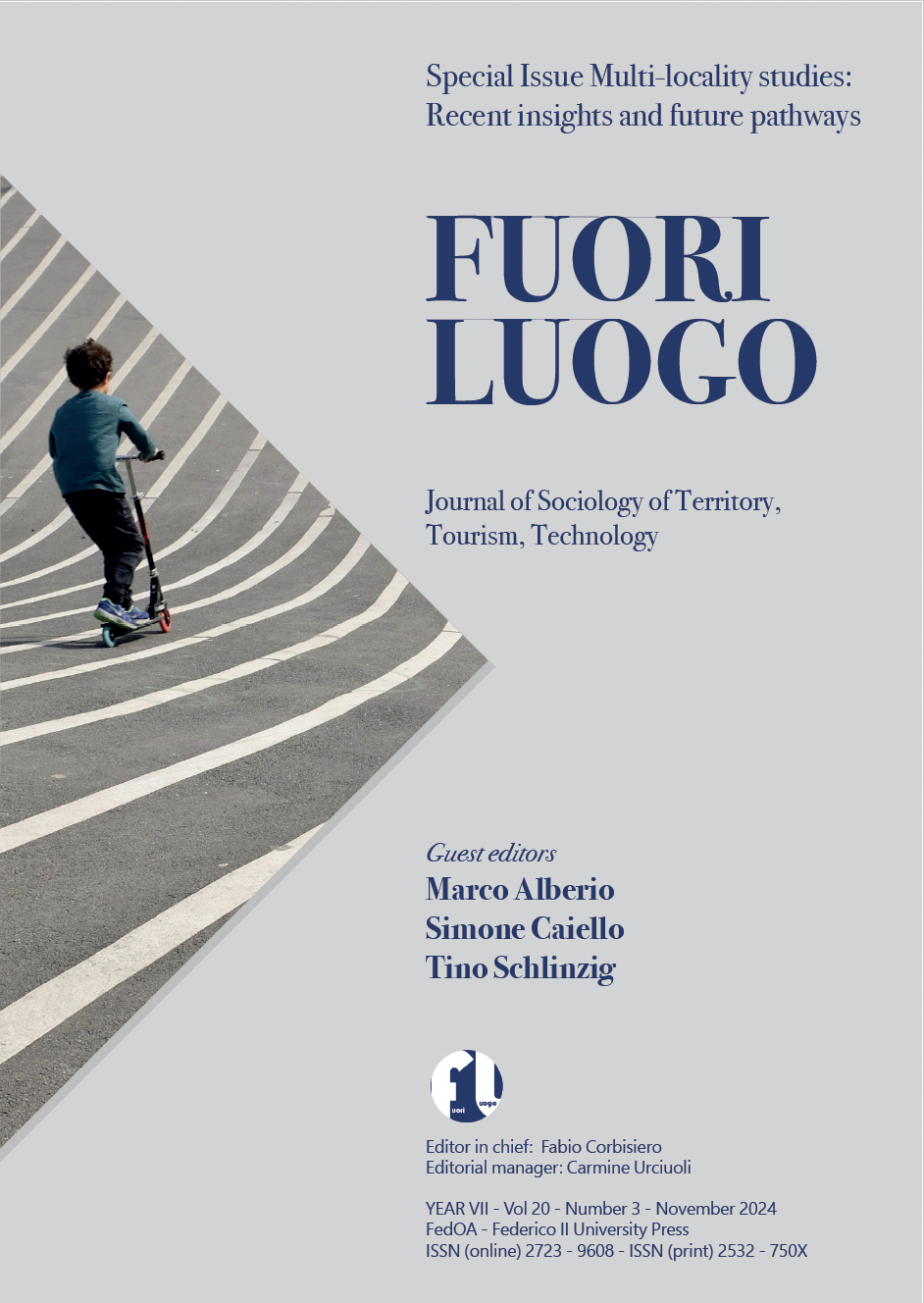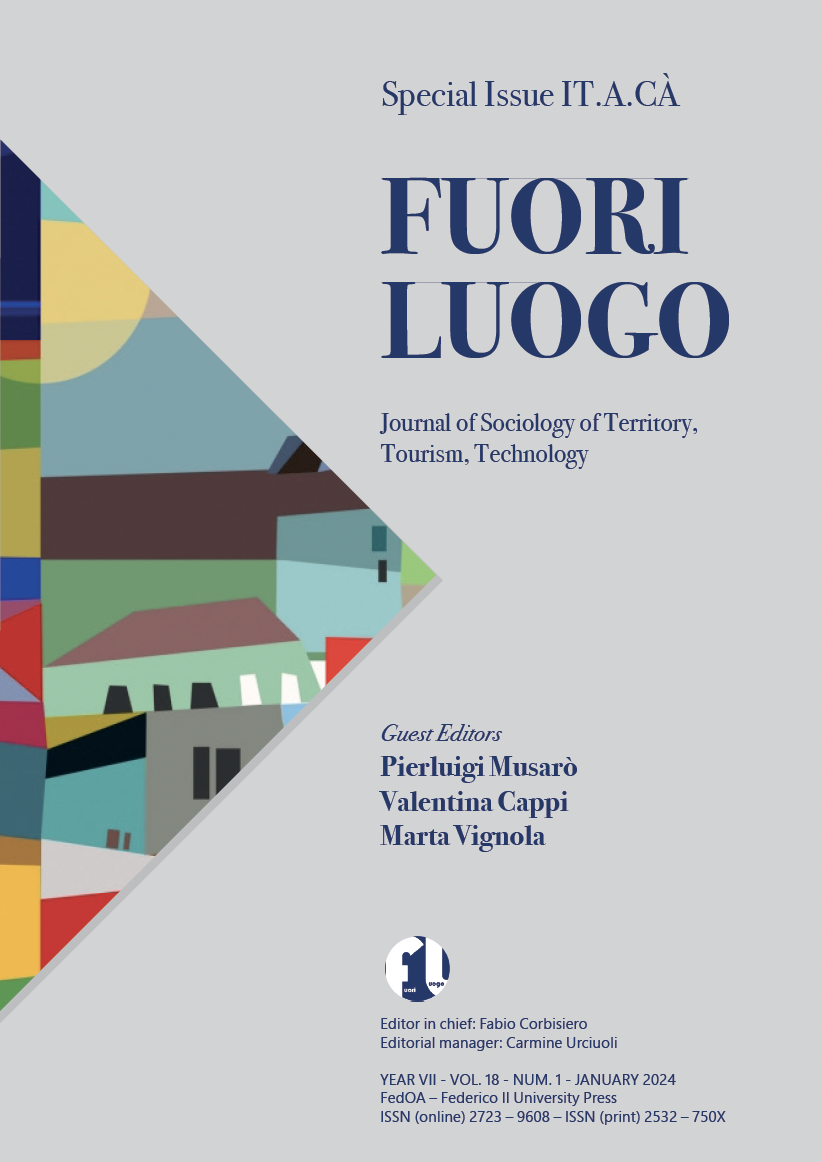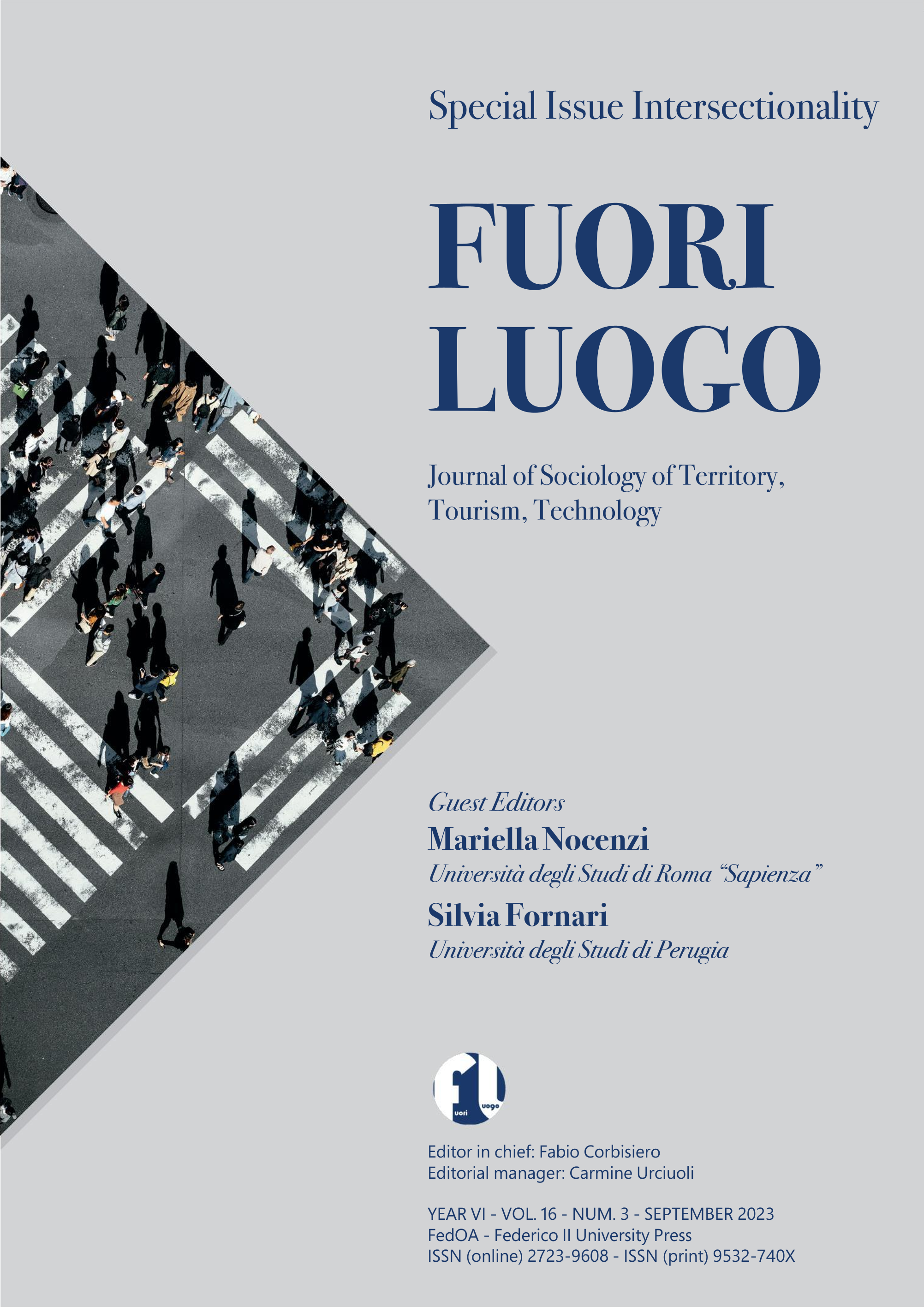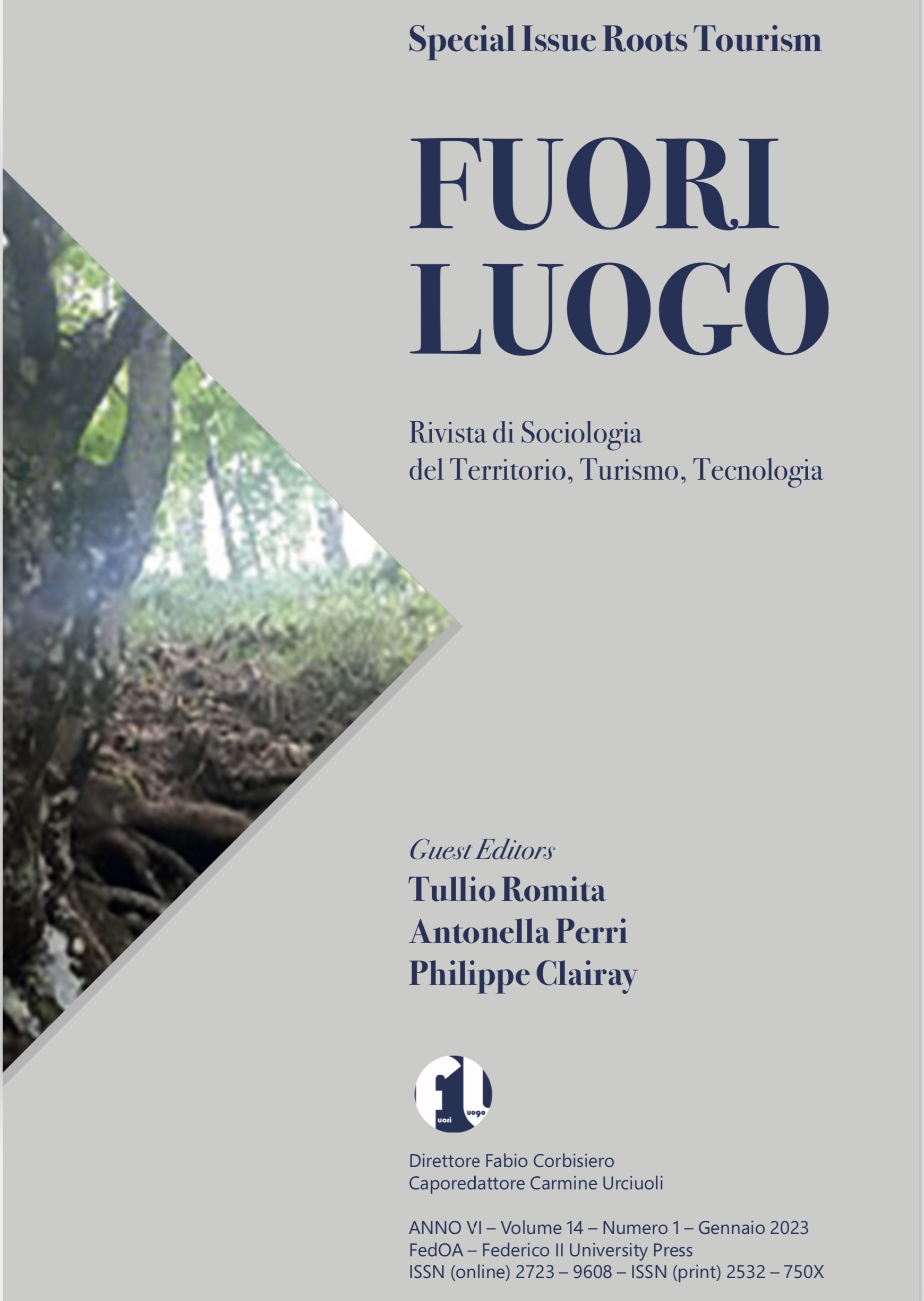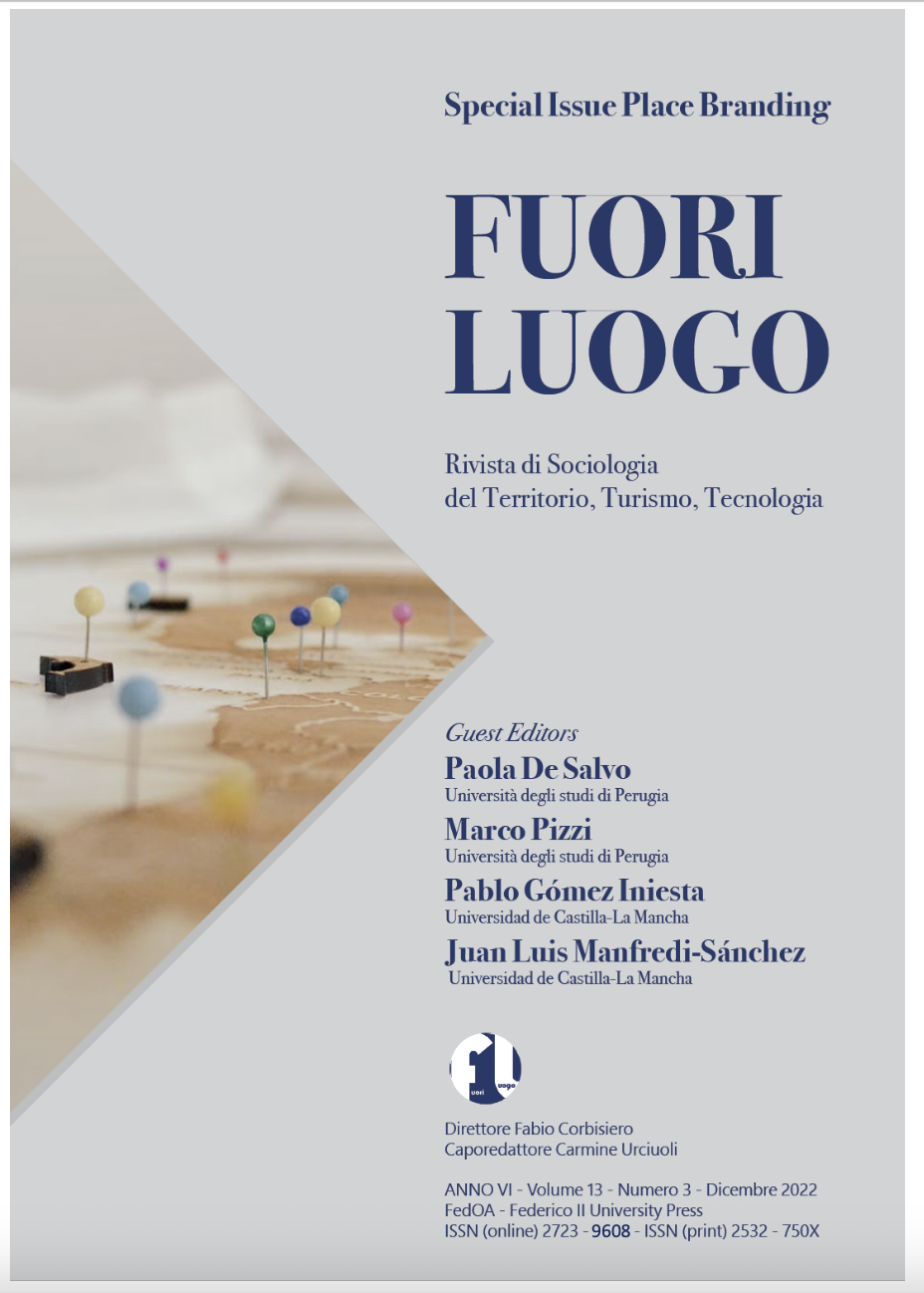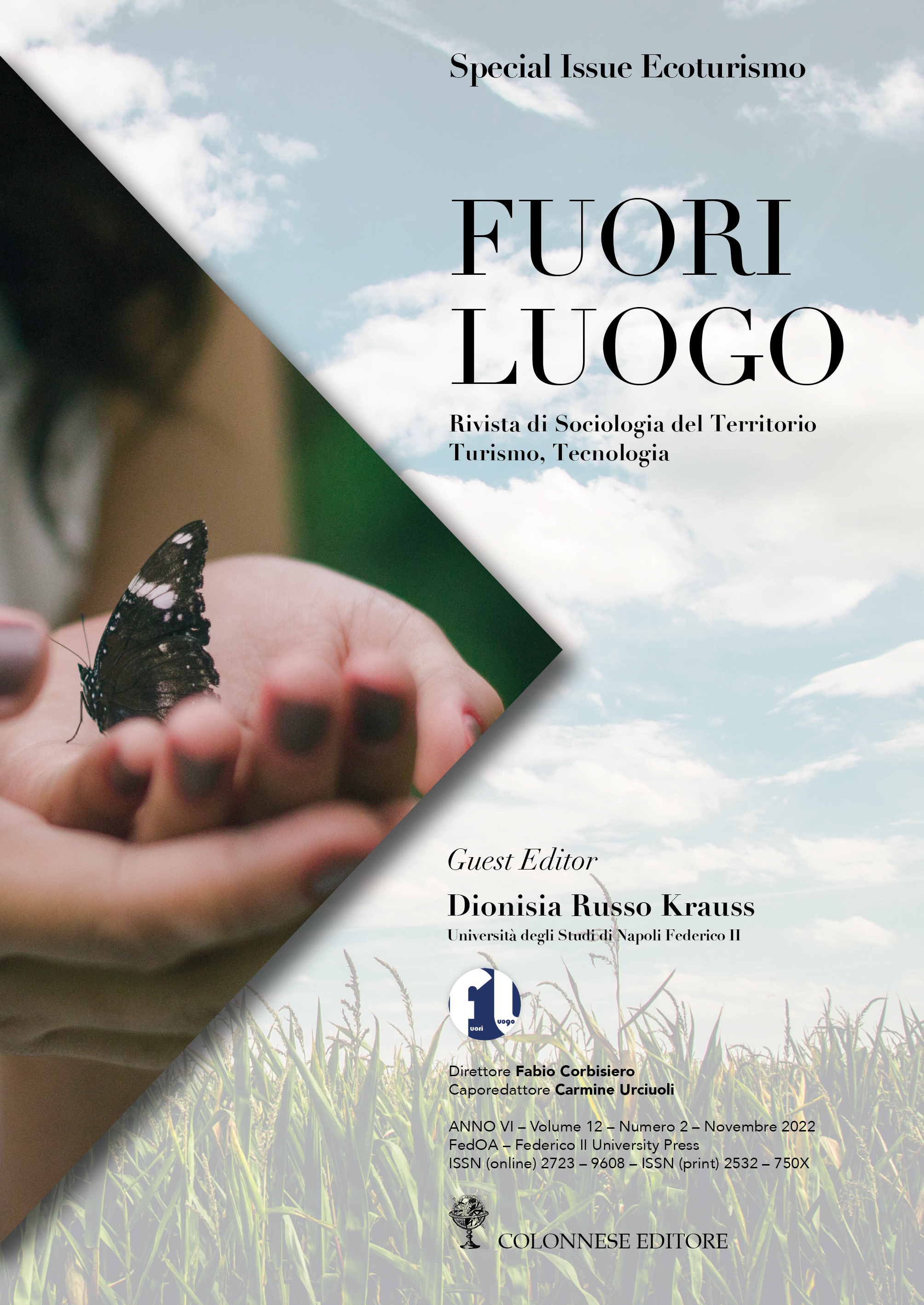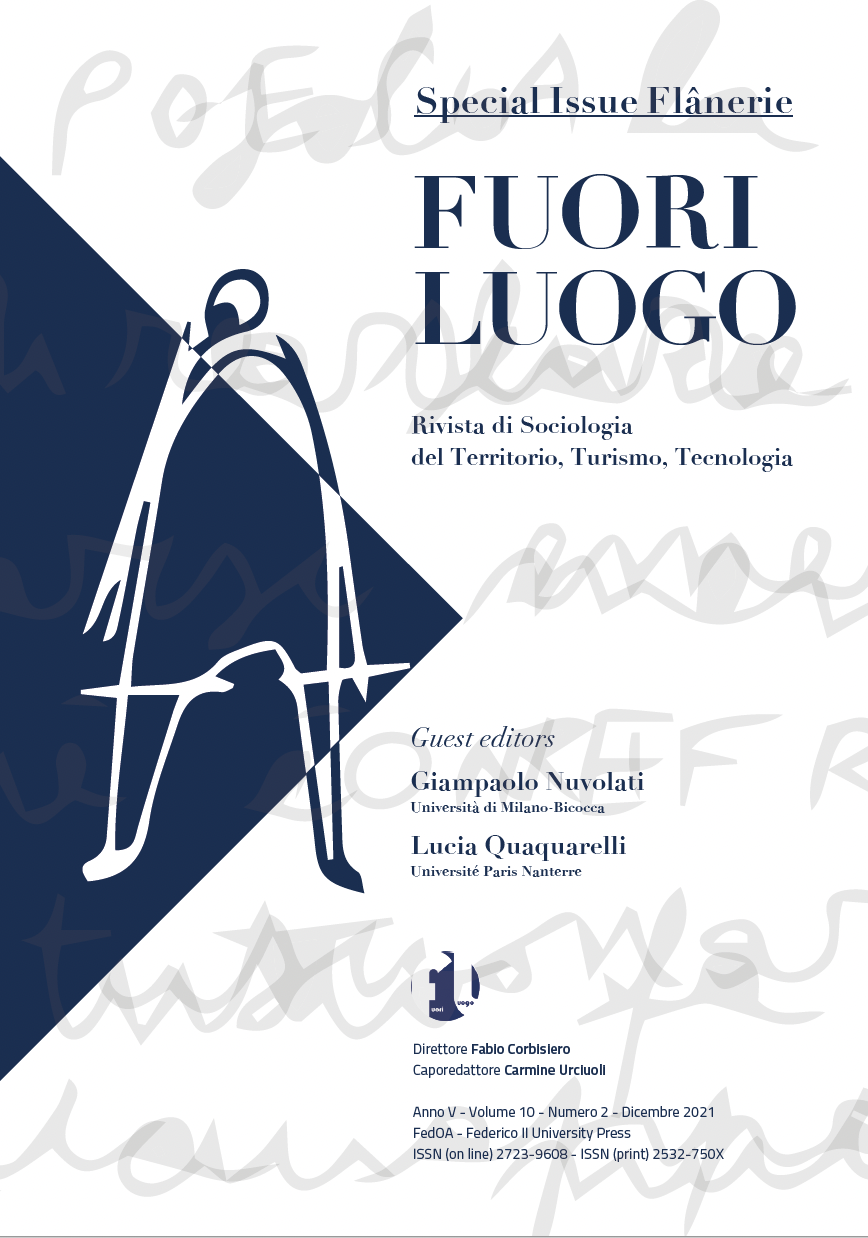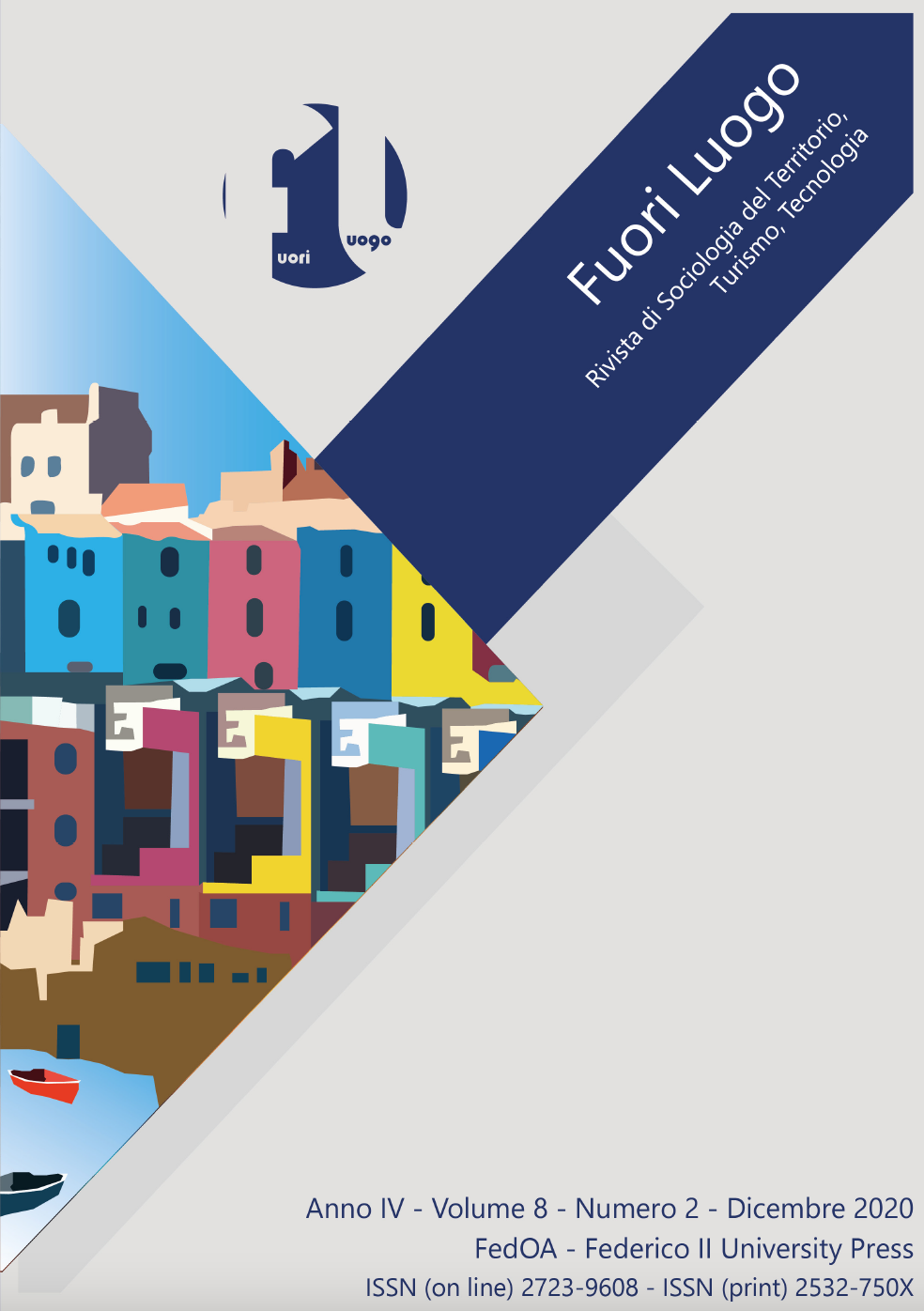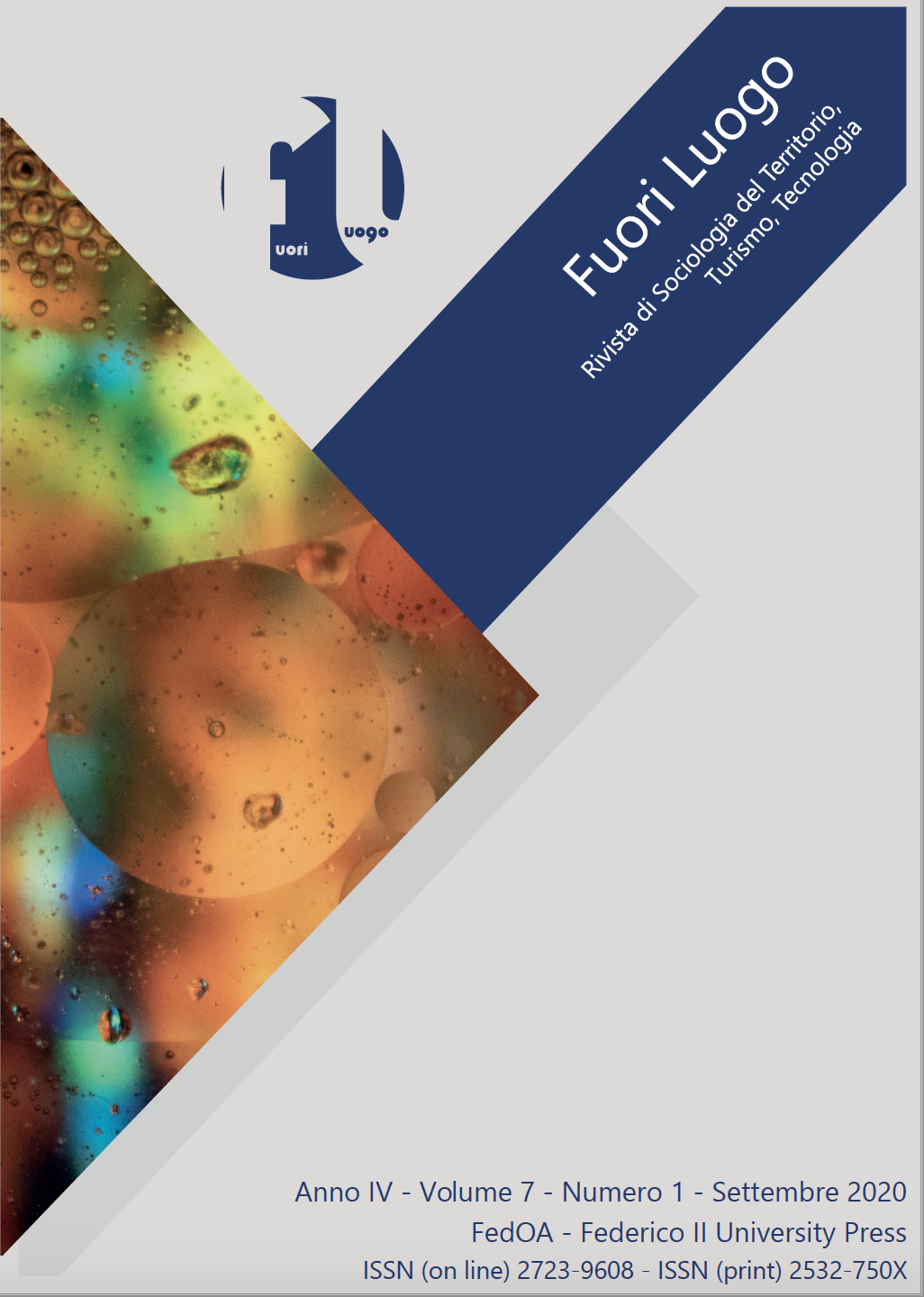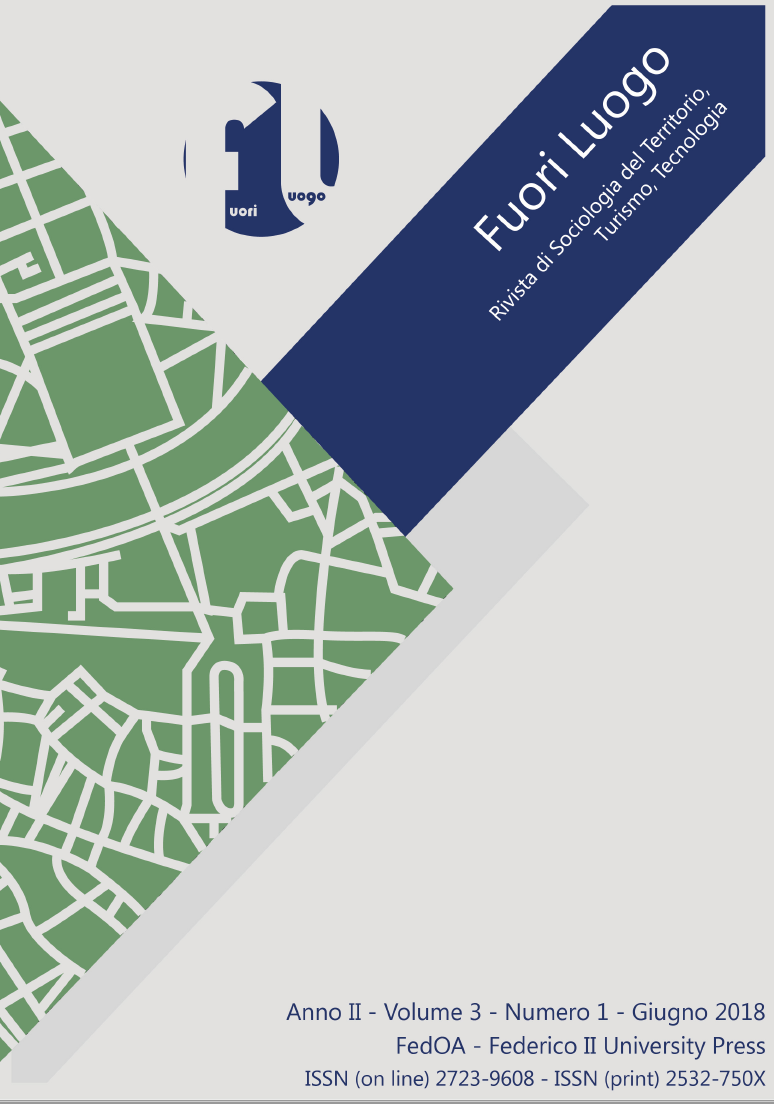-
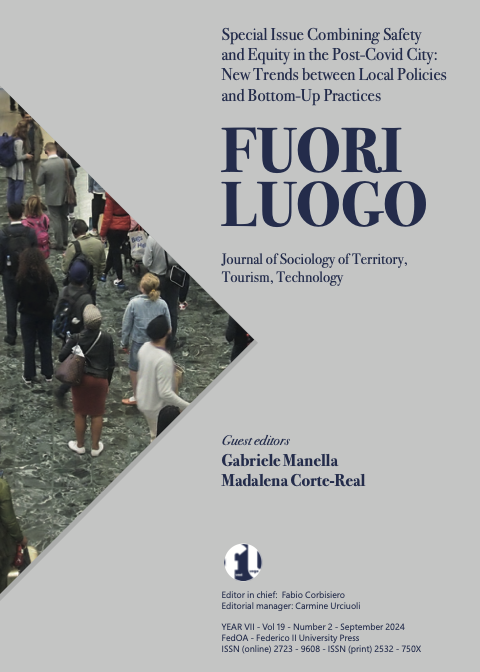 Fuori Luogo Journal of Sociology of Territory, Tourism, Technology - Special Issue Combining Safety and Equity in the Post-Covid City: New Trends between Local Policies and Bottom-Up Practices
Vol 19 No 2 (2024)
Fuori Luogo Journal of Sociology of Territory, Tourism, Technology - Special Issue Combining Safety and Equity in the Post-Covid City: New Trends between Local Policies and Bottom-Up Practices
Vol 19 No 2 (2024)The special issue of Fuori Luogo examines urban dynamics in the post-Covid context, focusing on the interplay between safety and equity. Edited by Gabriele Manella and Madalena Corte-Real, it highlights how cities, shaped by neoliberal trends, face growing inequalities exacerbated by the pandemic. Drawing on diverse case studies from Europe and beyond, the contributions explore themes such as governance, migration, tourism, healthcare, and child-friendly urban planning. By intertwining empirical research and theoretical reflections, the issue emphasizes the importance of inclusive policies and grassroots practices to foster resilient, equitable cities. It concludes with a critical reflection on urban sociology’s role in addressing these challenges.
-
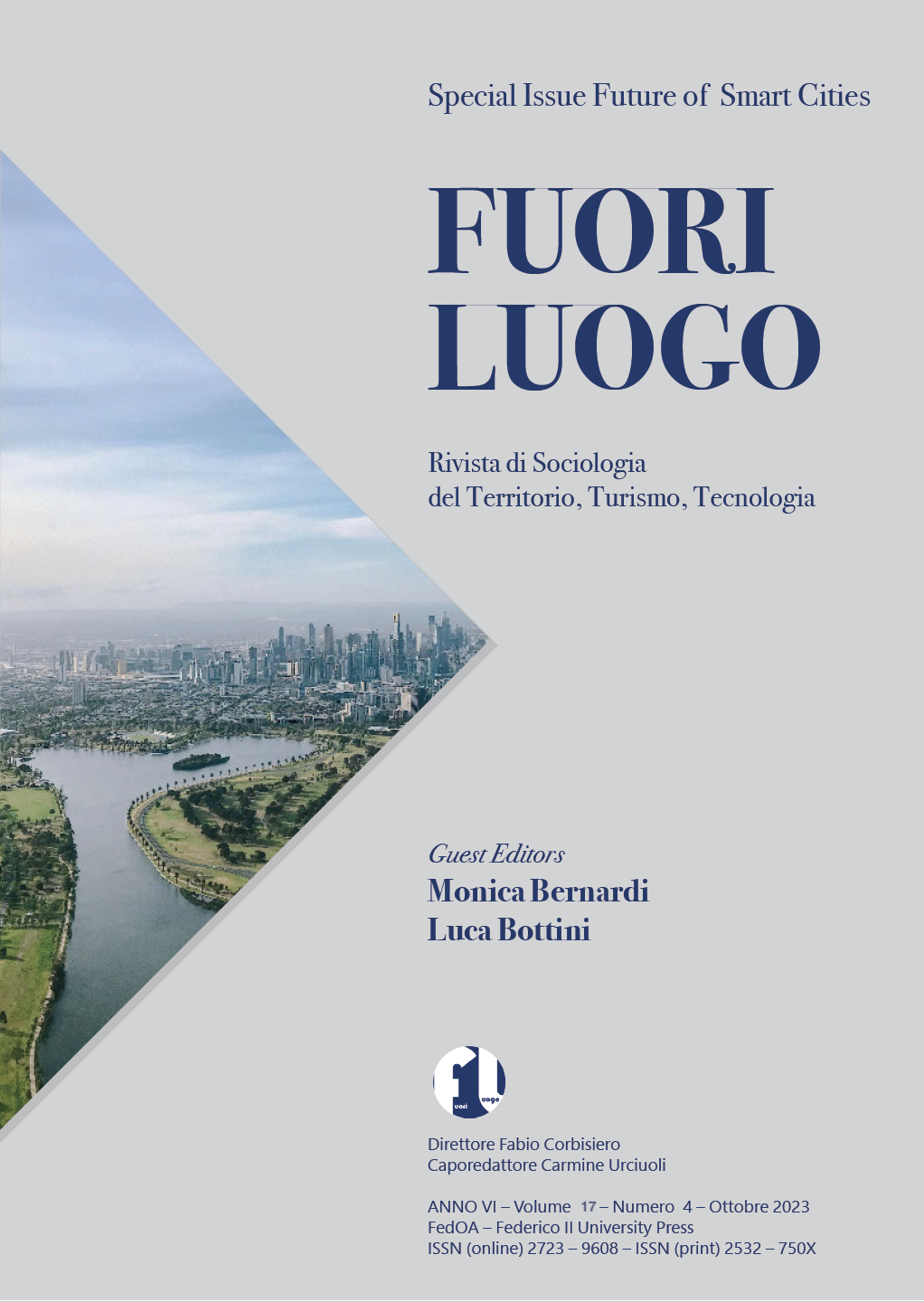 Fuori Luogo Rivista di Sociologia del Territorio, Turismo, Tecnologia
Vol 17 No 4 (2023)
Fuori Luogo Rivista di Sociologia del Territorio, Turismo, Tecnologia
Vol 17 No 4 (2023)The smart city paradigm, a focus of local governments for over a decade, aims at harmonizing urban growth with sustainability and enhancing citizens' quality of life. This paradigm, evolving since the early 2000s, has shifted from a technology-centric to a more citizen-centric approach, emphasizing sustainable and eco-friendly practices and inclusive governance. With ongoing urbanization, cities face increasing demands for resources, necessitating new governance models. The smart city concept has evolved to address these challenges, initially emphasizing technology's role in optimizing urban systems, later shifting towards citizen engagement and sustainability. However, climate change, exacerbated by urbanization since the Industrial Revolution, poses new challenges to this paradigm. Cities are now pivotal in promoting decarbonization and energy transition. This special issue, originating from the 2022 Bozen conference, explores smart cities in a climate-neutral scenario, focusing on urban sustainability. It includes seven contributions discussing smart city challenges and adaptations for policymakers in decarbonization and environmental sustainability. The issue examines various aspects, from technology and governance to social justice and energy transition, and emphasizes the importance of interdisciplinary approaches in creating sustainable urban environments. It concludes with insights on the complexity of smart cities, the role of local governance, data ownership, and climate management, highlighting the need for interdisciplinary research and innovation in developing resilient cities.
-
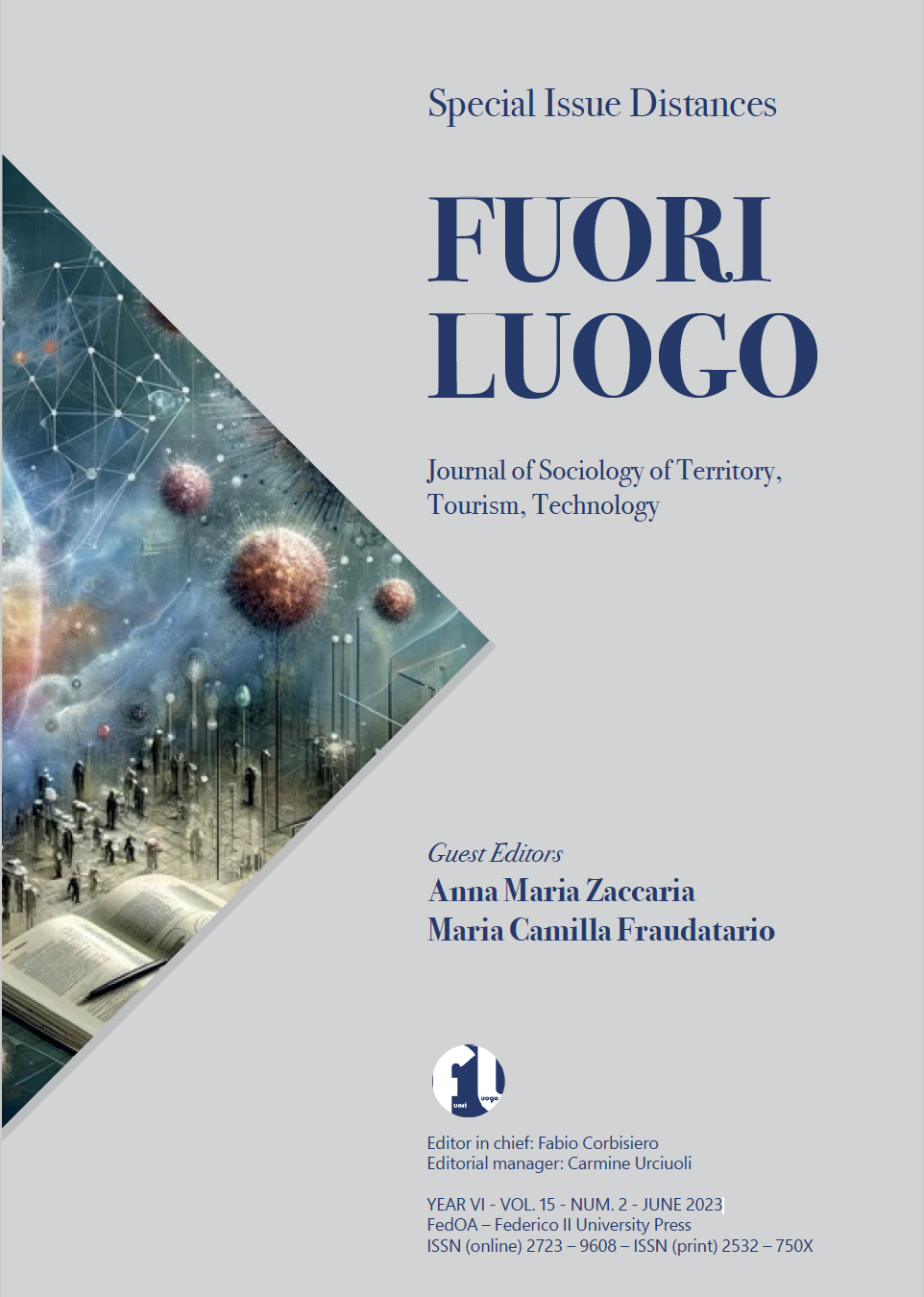 Fuori Luogo Journal of Sociology of Territory, Tourism, Technology - Special Issue Distances
Vol 15 No 2 (2023)
Fuori Luogo Journal of Sociology of Territory, Tourism, Technology - Special Issue Distances
Vol 15 No 2 (2023)The text delves into the sociological aspect of social distance, defining it as a subjective perception that significantly influences human relationships. It outlines how social distance is not merely about the physical space between individuals but also encompasses the degree of intimacy and confidence shaped by cultural, gender, and personal preferences. The sociological journey of this concept traces back to the works of Park and Burgess, who built upon the ideas of Tarde and Simmel, showcasing its prevalence in examining the nuances of human relationality. Social distance is portrayed as a critical factor in urban settings, such as neighborhoods, where it can dictate the strength and duration of relationships beyond familial ties.
In addressing these multifaceted implications of social distance, the text advocates for an integrated approach to mitigate inequalities and foster social cohesion. It emphasizes the need for collaborative efforts across sectors and levels of governance to address structural barriers and promote equality.
The current site is being decommissioned and contains non-current data which we ask you not to refer to. Please do not perform any operations. The journal Fuori Luogo is from March 2025 on the new site https://serena.sharepress.it
Fuori Luogo. Journal of Sociology of the Territory, Tourism, Technology
Scientific Director: Fabio Corbisiero | According to the resolutions of ANVUR, Fuori Luogo has been officially recognized as a scientific journal since 2019 in Area 11 (Historical, Philosophical, Pedagogical, and Psychological Sciences) and in Area 08 (Civil Engineering and Architecture). In 2021, it was reaffirmed as a scientific journal in Area 14 (Political and Social Sciences). Furthermore, it has attained a Class A ranking for sociological disciplines, specifically in the sectors 14/C1 (2019), 14/C2 (2019), 14/C3 (2017), and 14/D1 (2017).
Print ISSN 2532-750X | online ISSN 2723-9608 | Registration: Cancelleria del Tribunale di Napoli, n. 59 del 20 Dicembre 2016 The contents are published under a Creative Commons 4.0 license | Fuori Luogo Journal is realized with Open Journal System and published by FeDOA - Federico II University Press at Center for Libraries "Roberto Pettorino" | Fuori Luogo is indexed in: DOAJ Directory of Open Access Journals - ACNP Catalogue code n. PT03461557 - Index Copernicus International ID 67296. The journal is part of CRIS Coordinamento Riviste Italiane di Sociologia.
Print ISSN 2532-750X | online ISSN 2723-9608 | Registration: Cancelleria del Tribunale di Napoli, n. 59 del 20 Dicembre 2016 The contents are published under a Creative Commons 4.0 license | Fuori Luogo Journal is realized with Open Journal System and published by FeDOA - Federico II University Press at Center for Libraries "Roberto Pettorino" | Fuori Luogo is indexed in: DOAJ Directory of Open Access Journals - ACNP Catalogue code n. PT03461557 - Index Copernicus International ID 67296. The journal is part of CRIS Coordinamento Riviste Italiane di Sociologia.
Please be advised that the new link for the journal Fuori Luogo is https://serena.sharepress.it/index.php/fuoriluogo/

